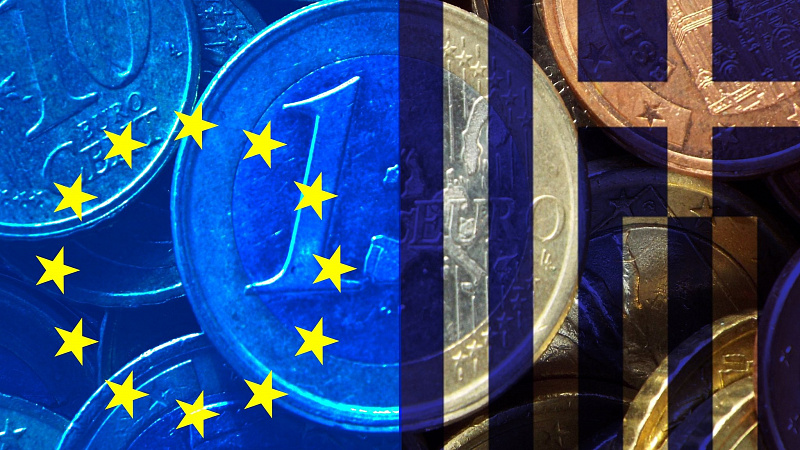Energy transition to spice up the political agenda
In any case, the European Commission recently presented its REPowerEU program, with which the so-called energy transition is to be heralded for the member states: more efficient use of energy, production of "clean" energy, and diversification of the energy supply. Here, too, the reason for the necessary setting of the course is attributed to the Ukraine conflict: "The new geopolitical and energy market realities require us to drastically accelerate our clean energy transition and increase Europe's energy independence from unreliable suppliers and volatile fossil fuels. REPowerEU is the European Commission's plan to make Europe independent from Russian fossil fuels well before 2030, in light of Russia's invasion of Ukraine. 85% of Europeans believe that the EU should reduce its dependency on Russian gas and oil as soon as possible to support Ukraine. By acting as a Union, Europe can achieve this faster. The REPowerEU plan sets out a series of measures to rapidly reduce dependence on Russian fossil fuels and fast forward the green transition while increasing the resilience of the EU-wide energy system."
This energy transition is currently being passionately discussed by politicians and the media, as it ideally complements the narrative of climate change and the interests behind it. It is therefore not surprising that energy transition is also a topic at this year's World Economic Forum in Davos: "A series of compounded shocks pose short-term risks to energy affordability, sustainability, and energy security. However, the window to prevent the worst consequences of climate change is closing fast, and the transition must be supercharged by ramping up clean energy investments, raising policy ambitions, and transforming consumer and industrial energy consumption."
Now, however, it is perfectly clear to every critical and realistic thinking person that something like an "energy transition" is by no means suitable as a short-term plan. It is obvious that we are talking about a long-term perspective here, with some experts assuming an implementation period of 30 years. It is also clear that the new technologies required for this must be used in parallel with the traditional, proven technologies in order to ensure redundancy and avoid outages or blackouts. And it is obvious that the EU member states have to spend enormous amounts of money to make these investments possible.
Securing the global dominance of the financial system
Taking this into account, then the conclusion remains that a different political agenda is being concealed under the title "energy transition". So who benefits from the fact that the EU stumbles into this process in a hurry? Who will benefit - apart from those energy companies, Europeans now have to purchase (even more expensive, and certainly not environmentally friendly) fracking gas? Well, the answer is relatively simple: international high finance will benefit because it needs high inflation to secure its global dominance and sovereignty.
Starting in the United States, high finance (still) has two trump cards to secure global hegemony and eliminate competition before it can become dangerous. On the one hand, there is the US dollar, which is still an important reserve currency. On the other hand, it is the control of the SWIFT system (SWIFT forwards transactions between approx. 11,000 banks, brokerage houses, stock exchanges, and other financial institutions in around 200 countries via SWIFT messages and thus handles the secure message and payment traffic of the connected companies and institutions).
However, this supremacy is threatened by two developments: Firstly, the enormous amount of money that is currently on the market - experts speak of five to six times the current global value creation. On the other hand, it is the competition from cryptocurrencies that are causing increasing concern for high finance.
So in order to continue to secure their dominance, eliminate unwanted competition, and, above all, maintain control over the national banks, an artificially controlled "crash" is needed that allows high finance to assert their interests in as controlled a manner as possible. The reduction of the enormous amount of money is only possible through high inflation and - associated - currency devaluation. How can high inflation be reached as quickly as possible? Through the means of the high national debt, through high energy prices, and through a supply crisis!
The EU member states themselves took care of the high debt during the corona pandemic. In view of the economic recession of the last two years, it would now be high time to reduce this national debt again, especially since – in this regard - very strict rules apply within the European Union with the Maastricht criteria. But since the high inflation is obviously intentional, it takes exploding energy prices and a supply crisis to accomplish this quickly. Needless to say, the economic and financial sanctions against Russia are designed to do just that.
However, the fact is that the Ukraine crisis in itself did not have to bring about this energy and supply crisis. So this development has to be seen for what it is: the attempt to use inflation to destroy the money supply, secure the control of high finance over Europe, counteract the competition from cryptocurrencies, and establish full digital control over financial flows. All of this is at the expense of Europe, its economies, and the prosperity of its societies.





